Since its introduction in 2015, the BMW B57 Engine’s six-cylinder linear turbocharged diesel has set new benchmarks in the automotive industry. This engine, which is a direct successor to the N57 diesel engine, reflects BMW’s long-term strategy for building modular and efficient engines that provide both performance and stability.
These powerful 6-cylinder engines are also powered by a mild hybrid using a 48-volt connected starter generator.In addition, BMW’s powerful dynamic solution suite, which applies to the latest diesel engines, includes the modern generation of common rail direct injection system with piezoelectric injectors.
The system is able to perform up to 10 injections per engine cycle, while the injection pressure reaches a maximum of 2,700, which significantly increases both the performance and efficiency of diesel engines.
The family of modern B57 motors using diesel oxidation catalytic converter and SCR coating for diesel particle filter (DPF) specifies the state of the exhaust exhaust gas after filtration.
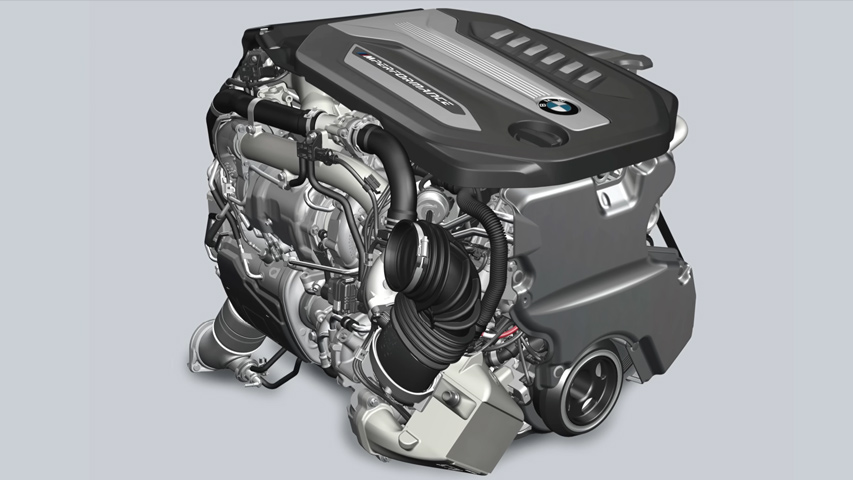
An additional unit of measurement of the adeblo is embedded in the output of the SCR engine, which helps to further reduce the NOx emissions. Thus, the generation of the newest diesel power plants now fully complies with the strict Euro 6d standard.
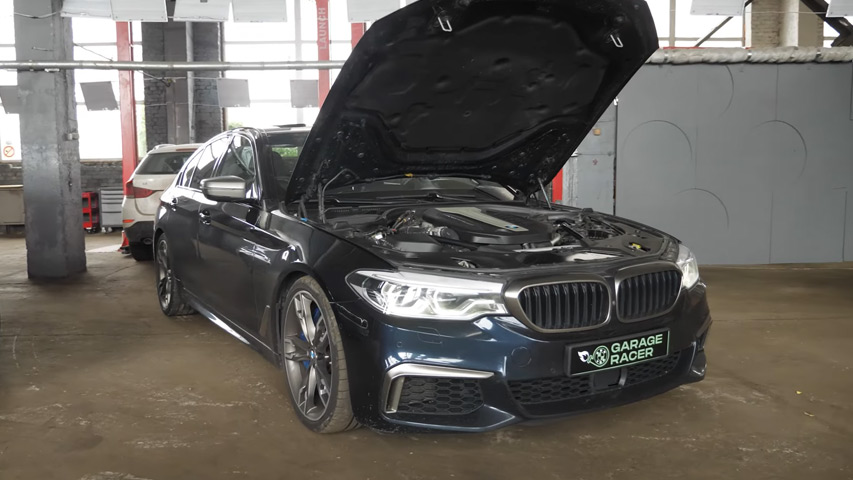
Specifications of the BMW B57 engine
The B57 engine belongs to the BMW modular engine family, a series that includes the B37 and B47 diesel engines, as well as the B38, B48 and B58 gasoline engines. Each of these engines is designed to use a common volume of 500 cc per cylinder, which allows saving on production scale and a simpler approach to engine service.
1. A prominent feature of the B57 is its versatility. The engine can be configured with up to four turbochargers operating in two series. This allows for significant changes in strength and performance, thus making it suitable for a range of BMW models.
2. When it comes to specific engines, the B57 engine has something to say. In the B57D30O0 version, the engine produces an output power of 195 kW (261 hp) at 4,000 rpm and a torque of 620 Nm (457 lb ft) between 2,000 and 2,500 rpm.
3. Upgrading to the B57D30T0, we see an output power of 235 kW (315 hp) at 4,000 rpm and a torque of 680 Nm (502 lb ft) in the range of 1,750 to 2,250 rpm. Performance numbers clearly reflect the engineering adjustments made for those looking for a little more power than their engine.
4. The last one is the B57D30S0 version, which is no longer produced. The high-powered model, produced between 2016 and 2020, had a significant output power of 294 kW (394 hp) at 4,400 rpm and stunning torque of 760 Nm (561 lb ft) between 2,000 and 3,000 rpm.
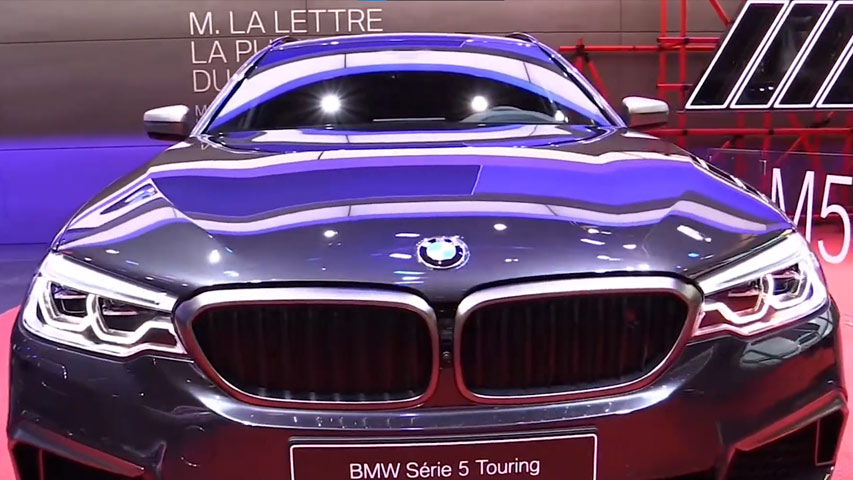
Complete list of cars with BMW B57 engine
| Engine version | Car model | Years of production | Hp | KW | lb-ft/torque (Nm) |
| B57D30O0 | G11 730d, 730Ld | 2015–2022 | 261 | 195 | 620 N/m / 457 lb/ft |
| G30 530d | 2017–2023 | 261 | 195 | 620 N/m / 457 lb/ft | |
| G32 630d Gran Turismo | 2017–2023 | 261 | 195 | 620 N/m / 457 lb/ft | |
| G01 X3 xDrive30d | 2017–Now | 261 | 195 | 620 N/m / 457 lb/ft | |
| G02 X4 xDrive30d | 2018–Now | 261 | 195 | 620 N/m / 457 lb/ft | |
| G05 X5 xDrive30d | 2018–Now | 261 | 195 | 620 N/m / 457 lb/ft | |
| G07 X7 xDrive30d | 2018–Now | 261 | 195 | 620 N/m / 457 lb/ft | |
| G20 330d | 2019–Now | 261 | 195 | 620 N/m / 457 lb/ft | |
| G06 X6 xDrive30d | 2019–Now | 261 | 195 | 620 N/m / 457 lb/ft | |
| B57D30T0 | G11 740d, 740Ld | 2015–2022 | 315 | 235 | 680 N/m / 502 lb/ft |
| G30 540d | 2017–2023 | 315 | 235 | 680 N/m / 502 lb/ft | |
| G32 640d xDrive Gran Turismo | 2017–2023 | 315 | 235 | 680 N/m / 502 lb/ft | |
| G01 X3 M40d | 2018–Now | 315 | 235 | 680 N/m / 502 lb/ft | |
| G02 X4 M40d | 2018–Now | 315 | 235 | 680 N/m / 502 lb/ft | |
| G15 840d xDrive | 2018–Now | 315 | 235 | 680 N/m / 502 lb/ft | |
| G20 M340d xDrive | 2020–Now | 315 | 235 | 680 N/m / 502 lb/ft | |
| G21 M340d xDrive | 2020–Now | 315 | 235 | 680 N/m / 502 lb/ft | |
| G22 M440d xDrive | 2020–Now | 315 | 235 | 680 N/m / 502 lb/ft | |
| G07 X7 xDrive40d | 2020–Now | 315 | 235 | 680 N/m / 502 lb/ft | |
| B57D30S0 | G11 750d |
BMW B57 Engine Problems
No engine is flawless, and the B57 is no Exception ! Some owners, especially in high-performance models, have reported problems with EGR coolers and turbochargers.
However, BMW’s commitment to excellence means that preventive solutions and measures are constantly being developed to ensure that these engines remain at the top of reliability and performance.
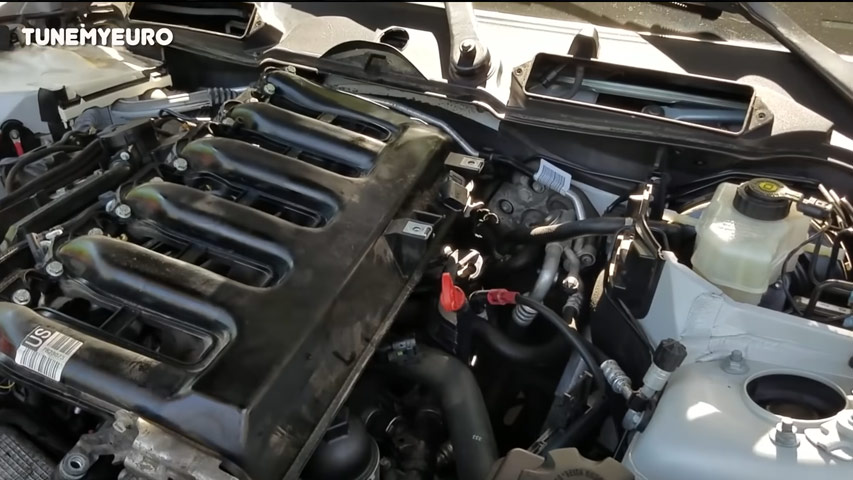
Despite its engineering excellence, the B57 engine is not immune to problems like any other engine. Here are some common flaws:
1. EGR coolant leakage: this is a known problem that can lead to reduced coolant and overheating of the engine. BMW has addressed this problem in many cases through warranty calls and extensions.
2. Timing chain wear: although not as common as some previous BMW engines, regular timing chain inspections are recommended to prevent premature breakdowns.
3. Turbocharger failure: some reports of turbo problems, often due to lack of maintenance or high performance, emphasize the importance of regular inspection and service.
Carbon deposition in the cylinder head, especially around the valves, reduces power or creates smooth spots. This is a bigger problem with direct injection engines, but you should look for it in all engines.
Some owners have encountered flatspots or defects after applying the material and upgrading or tuning. This is not usually related to engine design. Regular oil change is vital for the B57 engine, especially after tuning, and helps increase engine life and efficiency.
BMW B57 Engines Credit
The BMW B57 engine is a masterpiece that balances power, efficiency and environmental responsibility well. Its various versions guarantee that for every type of driver, from environmentalists to performance enthusiasts, there is a BMW with a B57 engine.
While it is important to be aware of common problems, the overall reliability and driving pleasure it offers makes it a prominent choice in the diesel propulsion market.
The B57 engines are generally reliable and robust, provided you follow the manufacturer’s service plans and use high-quality oil to ensure longevity. As long as they are regularly serviced and maintained, few problems should occur.
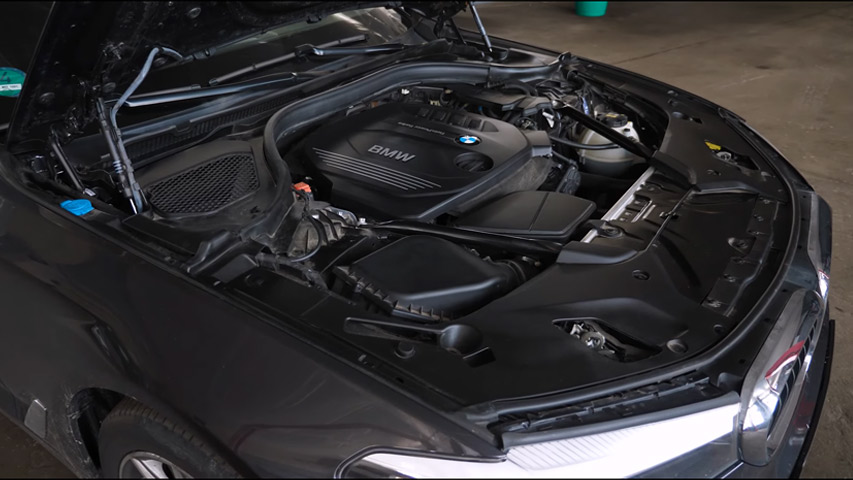
B57 Engine Timing Chain
All the timing chains used in the B57 are of the simple sleeve-type type. In a sleeve-type timing chain, the rotating gears of the camshaft always come into contact with fixed bushings at one point. Therefore, the correct lubrication of such chain rotation systems is of particular importance.
For various reasons, the time chain is exposed to tension. This tension can be caused by operating conditions (thermal expansion), adjustment operations or wear and tear. As we know from previous diesel engines, the B57 engine also uses Chromium nitride-coated chain pins. This coating helps reduce chain wear by up to 70% compared to sleeve-type uncoated chains.
To reduce the effects of time chain fluctuations, a vibrating damper is embedded in the B57 engine on the camshaft gear of the high pressure pump.
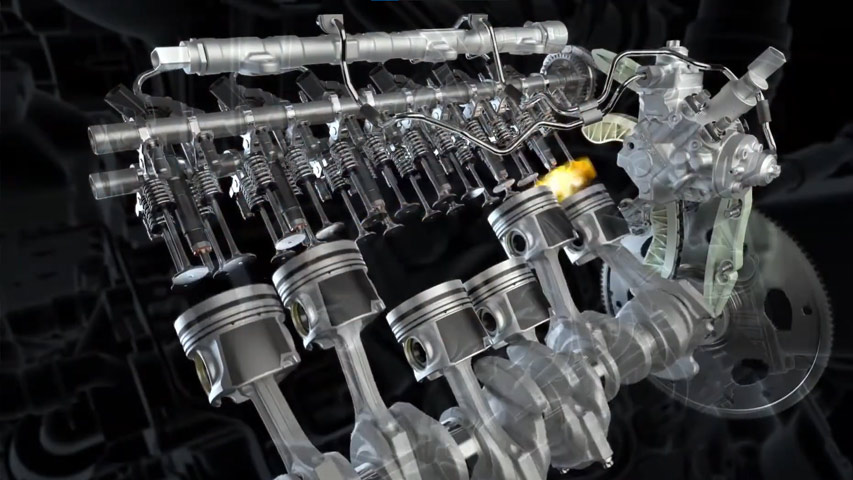
This vibration is caused by the phenomenon of the “polygonal effect”. In this phenomenon, the timing chain is not circled around the rotor of the camshaft, but is placed on it in the form of a polygon. When the camshaft rotates, irregular rotational motion is caused by the placement of the time chain Polygon.
The speed of the time chain fluctuates at equal intervals around an intermediate speed. This causes irritation in the timing chain and can lead to fluctuations.
If there is no vibration damper, this possible oscillation of the timing chain, also known as the “chain howling”, is transmitted to the engine body through a high pressure pump. This damper helps reduce chain wear by up to 70% compared to sleeve-type uncoated chains.
Sources:
wikipedia
BMW Group



